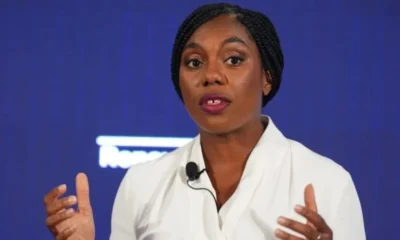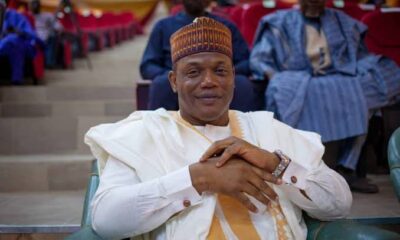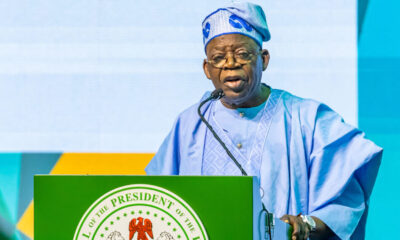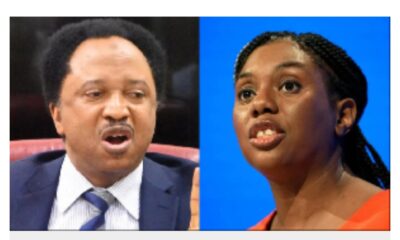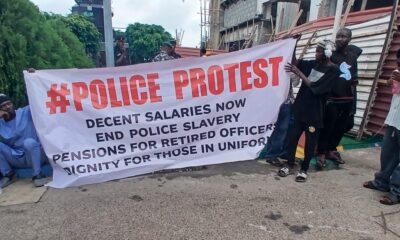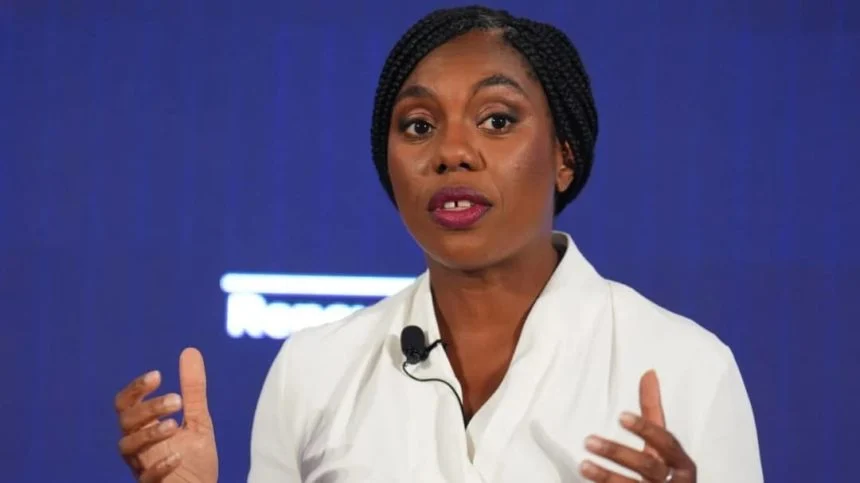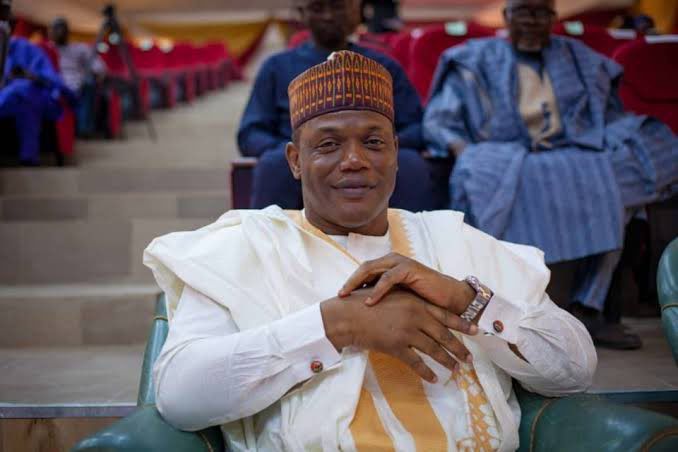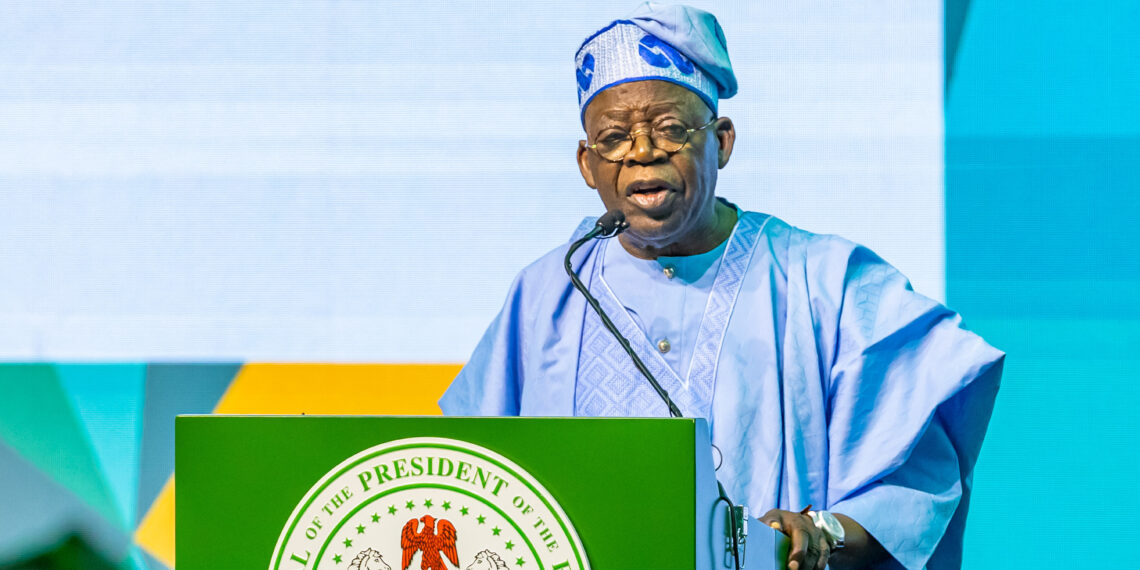The Nigeria National Petroleum Corporation Limited is not transparent about the financial gains from fuel subsidy removal, the World Bank has disclosed.
This extends to subsidy arrears that are still being deducted and the impact of subsidy removal on federation revenues, the bank noted. The Washington-based made this call in its Nigeria Development Update, December 2023 edition titled, ‘Turning The Corner (from reforms and renewed hope, to results).
This is the Minister of Finance and Coordinating Minister of Economy, Wale Edun, revealed that the government was ready to scrutinise the revenue flow from the NNPCL.
According to the World Bank, while revenue gains from the exchange rate reforms are visible, more clarity is needed on oil revenues, including the fiscal benefits from the PMS subsidy reforms.
It declared, “nominal oil revenue gains have been evident since June; these are mostly categorised as “exchange rate gains”, suggesting that they are due to the naira depreciation.
“Except for the exchange rate-related increases, however, there is a lack of transparency regarding oil revenues, especially the financial gains of the Nigeria National Petroleum Corporation from the subsidy removal, the subsidy arrears that are still being deducted, and the impact of this on Federation revenues. It is also unclear why retail petrol prices have not changed much since August, despite fluctuations in the exchange rate and global oil prices.”
The Bretton Woods institution further expanded that gains in net oil revenue of the federation were lower than what they should have been considering what the removal of fuel subsidy should have added to the accounts.
It stated that fuel subsidy cost the federation about N380bn a month, and once removed, the federation account should have recorded an increase in net oil revenues.
It said, “However, most of the gains in the oil revenues in H2 2023, as reported by OAGF, can be attributed to exchange rate gains. Without exchange rate gains, net oil revenue between January and August would have declined by 0.2 of a percentage point of full-year GDP, all materialising in the July–August period.
“In August, additional revenue from 40 per cent profit of Production Sharing Contracts and the interim yearly dividend were reflected in the accounts. However, these were not as high as what the gains from removing the gasoline subsidy should have been. Given that petrol pump prices have not changed in line with market fundamentals (notably exchange rate movements and global oil prices), there is a risk that the implicit fuel subsidy has reemerged, potentially keeping net oil revenues lower than expected.”
The institution further noted that the reform of fuel subsidy should help the NNPCL to settle its arrears and start paying fully for the Federation’s share of costs in joint venture operations, thereby allowing oil production to gradually increase over time.
Also speaking at the presentation of the report, the Coordinating Minister of the Economy, Edun noted that the removal of fuel subsidy saved the government’s finances.
He stated that while expectations that subsidy removal should boost the government’s revenue, it was faced with debt funding and a high fiscal deficit.
He said, “In terms of the government’s finances, you have rightly pointed out that following the removal of subsidy, there is an expectation that there would be fiscal dividends and it’s fair to say that without it, government finances will be in total disarray now. However, there is debt funding, pressure on fiscal deficit, and on government finances, and borrowings which have been inherited.
“Our levels of borrowing are being reduced and there is a plan to reduce that fiscal deficit over time. On the revenue side, the first source is oil, and I expect that there will be serious scrutiny on oil revenue and production and insistence on raising oil production and similarly that the revenues are brought into the federation account following the constitution. I think there will be added scrutiny, and I am sure NNPC is getting ready for that.”
Edun further declared that there would be a robust rollout of measures to raise tax revenue soon. He, however, highlighted that tax rates would not be increased but a lot would be done regarding efficiency, digitalisation, and improved collection.
He added that waivers and tax incentives would be scrutinised to revamp it and save leakages, particularly among ministries, departments and agencies.
- Subsidy Removal And Controversies
On May 29, President Bola Tinubu announced the removal of fuel subsidy with, “Subsidy is gone,” to free up foreign exchange earnings.
In his August 1 national address, Tinubu disclosed that the Federal Government had saved about N1tn in two months after the removal of the petrol subsidy freeing up funds for other things in the economy.
He said, “In a little over two months, we have saved over a N1tn that would have been squandered on the unproductive fuel subsidy which only benefitted smugglers and fraudsters.”
According to him, the funds saved from subsidy removal “will now be used more directly and more beneficially for you and your families.”
However, there have been concerns that the dividend of subsidy removal has not trickled down to the average Nigerian.
Recently, a former Governor of the Central Bank of Nigeria, Sanusi Lamido Sanusi, alleged that the NNPCL might not be remitting enough dollars to the federation account despite subsidy’s removal.
Speaking during the Bank Directors Summit organised by the Bank Directors Association of Nigeria recently, Sanusi, said, “The exchange rate needs to be stabilised and we have to address the fundamental question, why is there no money coming in?
“Why is the NNPCL not able to bring in dollars? Am sorry this is the question that cost me my job and I will continue asking this question until NNPCL fixes it up or until I die. Where are the dollars? We need to shine a light on the NNPCL. The finance minister cannot tell you because he doesn’t have a monitoring system that reports to him.
“The finance minister can’t tell you how many barrels of petrol we produce and export. It is only the NNPCL that can give those figures. The finance ministry needs to know how much oil we produce daily, how much we sell, and where the money is going. We are no longer paying subsidies so where are the dollars? It was under recovery during the subsidy era and that has been stopped, so where is the money?”
Sanusi noted that the NNPCL was opaque about its dealings, shrouding many of its dealings in secrecy.
Defending the oil company’s finances, the NNPCL’s Chief Financial Officer, Umar Ajiya, who was representing the Group Managing Director, Mele Kyari, disclosed that since the inflow of dollars into the country is tied to oil revenues, the country is facing the consequence of falling oil production, insecurity, and lack of investments in the sector.
He also said the NNPCL had been using its revenue to import refined PMS and service debt. He said, “Just to clarify and let the audience go with a well-balanced information. The inflows of dollars into the country are tied to oil revenues and the oil revenues are driven from oil production.
“The consequence of what we are facing today is a fall in oil production simply because of insecurity and lack of investments. The net dollar accruable from oil operations is what the NNPCL uses to import PMS. The PMS is sold in naira, you can’t sell it in dollars. Consequently, you would find out that the net dollar inflows into the NNPCL coffers are spent on the import of basically PMS and debt service.”
Ajiya stressed that the surplus dollars inflow to the CBN and any other bank in the country can only happen when the country starts producing PMS over its domestic requirement.
According to the CFO, adequate forex inflow can also happen if insecurity is addressed, and such development will attract partners to bring in fresh dollars in the form of investment to oil operations.
He added, “So until such a point where we have excess production over and above what we consume, then we will begin to see much dollar liquidity coming into this country. The whole consumption pattern of most Nigerians is foreign import-dependent and until we come to a position whereby, we begin to consume what we produce and also add value to our raw materials to bring further FX into the country.”
In its report, the global bank noted that there is a risk that Federal Government may still be paying for fuel subsidy which is why net oil revenues are lower than expected.
During his presentation at the unveiling of the report, the bank’s Lead Economist for Nigeria, Alex Sienaert, noted that fuel processes are currently not cost-reflective in the country.
He disclosed that the market price of petrol should be around N750/litre.
He said, “It does seem like petrol prices are not fully adjusting to market conditions, so that hints at the partial return of the subsidy, if we estimate what is the cost reflective of retail PMS price of the would-be and assuming that importation is done at the official FX rate.
‘’Of course, the liberalisation is happening with the parallel rates, which is the main supplier, the price would be even higher. These are just estimates to give you a sense of what cost-reflective pricing most likely looks like. We think the price of petrol should be around N750 per litre more than the N650 per litre currently paid by Nigerians.”
According to him, there is a need for the government to clarify how prices at the pump are fixed as opposed to market conditions.
He noted that the government must ensure that revenue gains from the removal of fuel subsidy materialises, while improving the transparency of the NNPCL with regards to profits and oil revenues to be remitted to the Federation Account.
- 104million Nigerians Poor
While noting that important reform decisions have been taken for Nigeria to avoid a fiscal cliff, the World Bank stated that these reforms were followed by difficult economic adjustments.
Since the removal of fuel subsidy, retail fuel prices have increased by more than 163 per cent and after shifting to a unified, market-reflective foreign exchange regime, the naira has depreciated against the US dollar by about 41 percent in the official market and 30 percent in the parallel market.
The sharp increase in the price of fuel and other imported goods has contributed to inflation, which hit an 18-year record high of 27.3 percent year-on-year in October.
However, the World Bank insists that the recent reforms will undo the increases in poverty seen in recent years from 2024 onward, albeit only marginally and slowly.
It stated that sluggish growth and rising inflation increased poverty from 40 per cent in 2018 to 46 per cent in 2023, pushing an additional 24 million people below the national poverty line.
It said the number of poor Nigerians rose from 79 million in 2018 to 104 million in 2023, with urban poor, more exposed to inflation, increasing from 13 to 20 million, while the number of poor people in rural areas increased from 67 to 84 million.
It argued, “In the medium term, the reforms will reverse this trend through higher growth and lower inflation, but to a limited extent, with poverty rates decreasing from 46 per cent in 2024 to 44 percent in 2026.”
According to the World Bank, the successful implementation of the initiated reforms will be the first step toward improving Nigeria’s growth prospects.
It highlighted that the implementation of fuel subsidy removal and foreign exchange unification rate would push economic growth to 3.5 per cent between 2023–2026, adding 0.5 percentage points to the growth potential in a scenario in which the reforms had not been implemented.
The global bank further stated that in the medium term, the economy will begin to benefit from increasing fiscal space for development spending.
While noting that inflation will begin to fall in 2024, it added, “Together, such reforms would boost investment and productivity across sectors, unlocking the stronger growth that Nigeria’s economy demonstrably capable of, and allowing economic development to regain its fast pace.”
Credit: The Punch
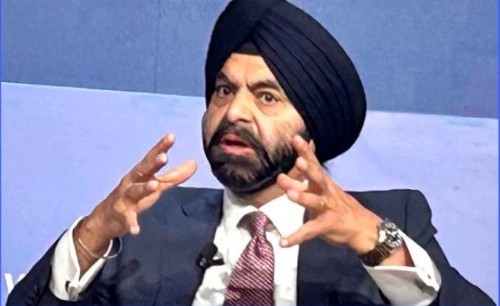

 BIG STORY4 days ago
BIG STORY4 days ago
 BIG STORY3 days ago
BIG STORY3 days ago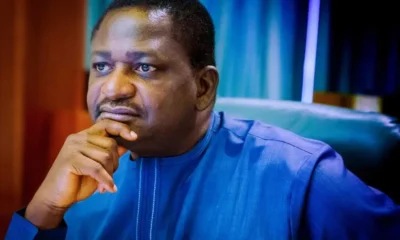
 BIG STORY3 days ago
BIG STORY3 days ago
 BIG STORY5 days ago
BIG STORY5 days ago
 BIG STORY3 days ago
BIG STORY3 days ago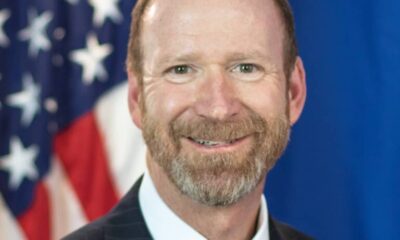
 BIG STORY3 days ago
BIG STORY3 days ago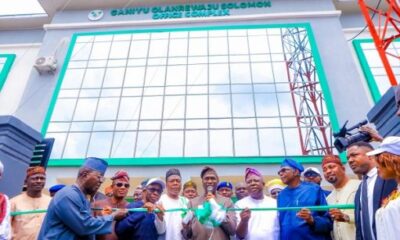
 BIG STORY3 days ago
BIG STORY3 days ago
 BIG STORY3 days ago
BIG STORY3 days ago






